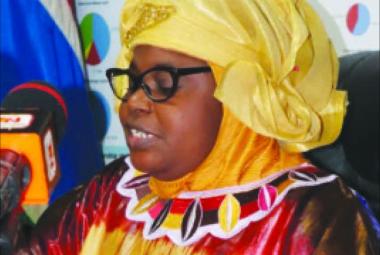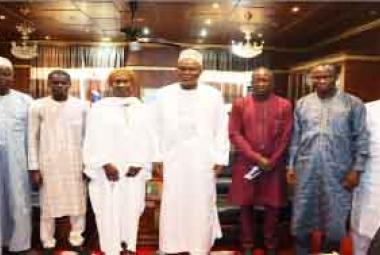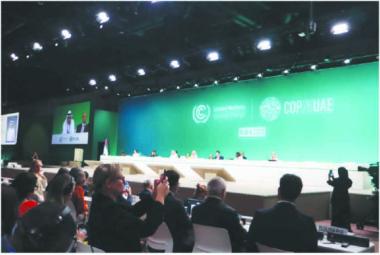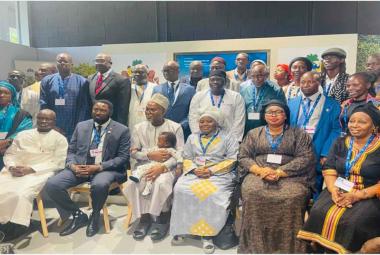Her Excellency the vice President Dr Isatou Touray graced the International Water Day Celebration Meeting at the 9th World Water Forum, held in the Senegalese capital of Dakar. Held from 21st -26 March 2022, the Forum aimed to afford stakeholders the opportunity to exchange views on the future of water and sanitation, and to serve as a catalyst for action to accelerate universal access to water and sanitation.
Opening the meeting, the Vice President made reference to the United Nations World Water Development Report 2022, (prepared by UNESCO on behalf of the UN-Water family), saying it alerts about the limits of using and misusing groundwater. She said Africa being the youngest continent, needs to pay special attention to groundwater, to ensure water security for future generations.
“It is estimated that water consumption will increase by 1% per year over the next 30 years. The report [also] points out 4 billion people, or half of the world’s population already lives in regions where there is a lack of water. It is therefore necessary to meet these growing needs without depleting, polluting or confiscating water resources”.
Furthermore, VP Touray warned that Africa is in the front line, further referencing the IPPC Report that by 2050, the number of Africans who lack water could triple, reaching almost one billion.
“In this respect, it was important that this forum was held, for the first time, in sub-Saharan Africa,” she noted, pointing out that groundwater provides a feasible and affordable way to extend basic water access to un-served rural population, as is the case in Sub-Saharan Africa, where the rural population is large but dispersed.
“Where a perennial and reliable source of shallow groundwater exists, groundwater can be an important source for smallholder farmers. In Sub-Saharan Africa, where the opportunities offered by the vast shallow aquifers remain largely underexploited, only 5% of the area equipped for irrigation uses groundwater,” she explained.
The Gambian Vice President posited that poor farmers, especially women, can improve their livelihoods through smallholder agriculture or livestock farming, using groundwater and small pumps. She recommended the availability of more data and more reliable information in order to develop groundwater uses, for human and the ecosystems.
She also underscored the importance of investment in innovation, to accelerate the achievement of the SDG 6 on water and sanitation. “In Sub-Saharan Africa, there is still heavy reliance on diesel-engine pumps or handpumps. We need to increase use of solar panels as a source of energy for groundwater pumps,” Dr Touray recommends.
She finally urged for commitment to national and regional efforts towards sustainable water management, for the benefit of all; more so the vulnerable.





